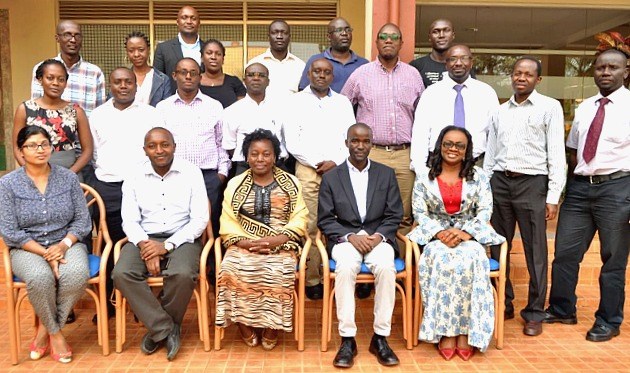South-South Collaboration: Africa Centre for Systematic Reviews at Makerere University co-hosts Cochrane GRADE Workshop
Wednesday, 02 Nov 2016
Kampala, the city of seven hills, is the capital of the ‘Pearl of Africa’ as Sir Winston Churchill observed during his Ugandan exploration. It is here that Makerere University, once known as the ‘Harvard of Africa’, hosts the Africa Center for Systematic Reviews and Knowledge Translation. Together with colleagues from Cochrane South Africa we held the first GRADE workshop in Uganda, three years after the founding of the Africa Centre. Our core mandate is to strengthen capacity for evidence synthesis and use, largely in the East African community through innovation, collaboration and open access.
The plot to co-host this event was hatched over the Africa team dinner during the 22nd Cochrane Colloquium in Vienna, Austria in October 2015. The group was receptive to the idea, which was actualized from 18 to 22 January 2016. The thirst for skills in evidence synthesis among African scientists is palpable, and the applications were so overwhelming that it was necessary to have a bigger class than originally planned.
The 19 participants were from multidisciplinary backgrounds and from five countries - Botswana, Ghana, Tanzania, Kenya, and Uganda; and eight research institutions including the Kenya Medical Research Institute, Komfo Anokye Teaching Hospital, Ifakara Health Institute, the Tanzania Ministry of Health, and the universities of Dodoma, Botswana, Gulu, and Makerere.
In this two-part course, the first two days were dedicated to the GRADE approach and the last three days focused on hands-on work to complete ongoing systematic reviews in group-work fashion.
Participants were also treated to an African cultural evening at the Ndere Centre in Kampala.
From the feedback received most participants perceived the sessions as very useful with a great deal of learning.
This GRADE workshop was supported by Cochrane South Africa, South African Medical Research Council, through the Effective Health Care Research Consortium. This Consortium is funded by UK aid from the UK Government for the benefit of developing countries (Grant: 5242). We acknowledge the funding support from Dr Marie-Gloriose Ingabire of the Canadian International Development Research Centre, Ottawa.
This news feature was first published in the Cochrane South Africa newsletter, Volume 18 (No. 1) July/August 2016
